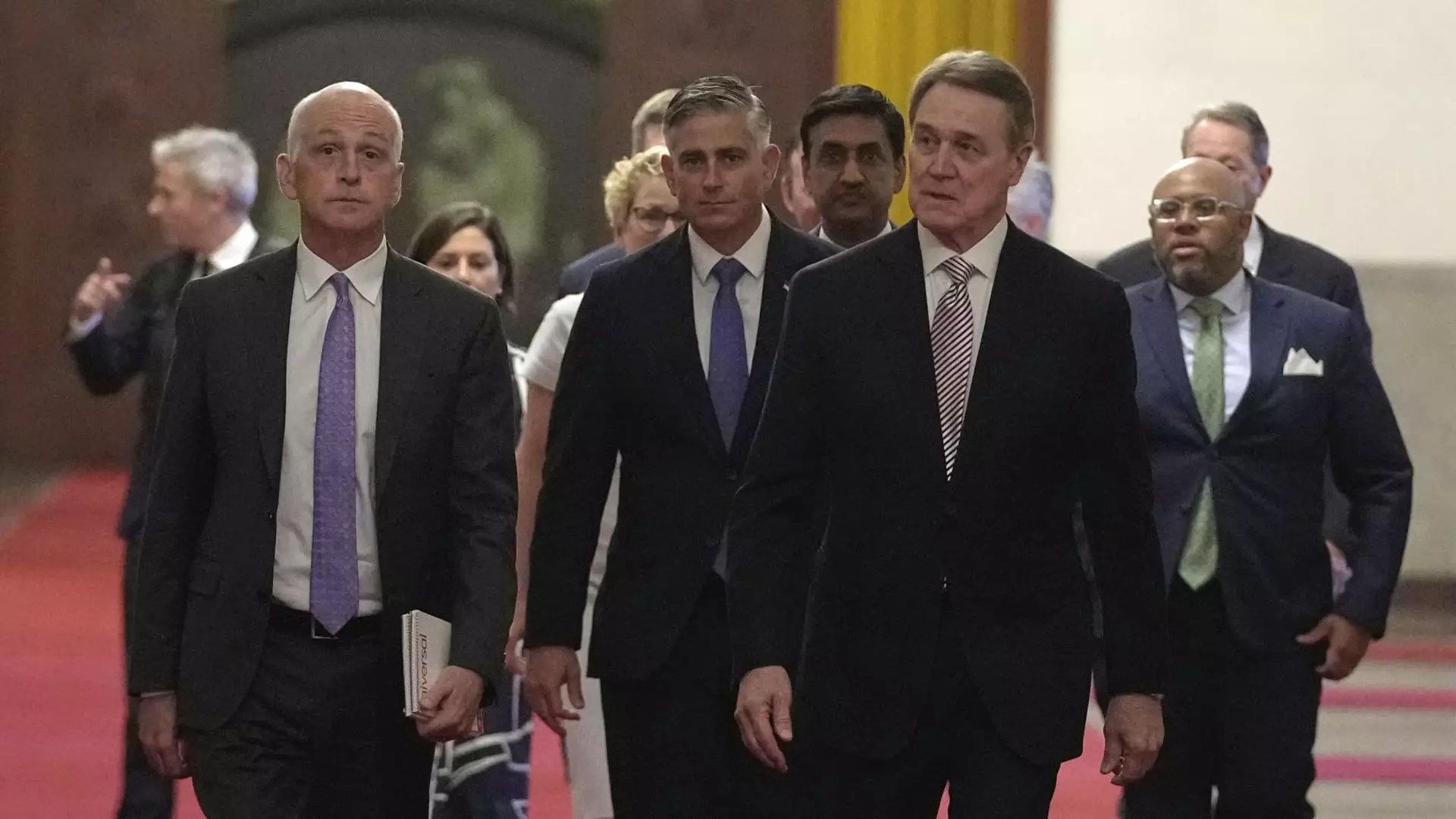The recent visit of a bipartisan U.S. delegation to Beijing signifies a grudging acknowledgment that dialogue between the two largest economies is not only necessary but urgently overdue. While this trip marks the first official House of Representatives visit to China since 2019, its significance must be weighed against the backdrop of years filled with heightened tensions, sanctions, and diplomatic freeze-outs. It’s heartening to see American lawmakers make the effort, but frankly, it falls short of addressing the deep-rooted issues that threaten global stability. Token visits and diplomatic gestures, no matter how well-meaning, are insufficient if they do not lead to substantive policy changes and a genuine effort to understand each other’s concerns.
The Illusion of Ice-Breaking in a Fractured Relationship
There’s an optimistic tone in official reports suggesting this trip will “break the ice,” but the reality is far more complex. The relationship has suffered from years of mutual mistrust, stemming from unresolved geopolitical disputes, economic confrontations, and conflicting national interests. The conversation with Premier Li Qiang undoubtedly signals a desire to reopen channels, yet these gestures risk being superficial if they do not translate into tangible concessions or shifts in policy. Diplomacy requires more than visits; it demands genuine engagement rooted in mutual respect and acknowledgment of each other’s security concerns. Until both sides tackle core issues—be it trade practices, technological restrictions, or sovereignty claims—such efforts may simply become theatrical stunts that paper over deeper conflict.
Strategic Ambivalence and the Perils of Superpower Rivalry
The United States’ approach to China often oscillates between strategic competition and cautious cooperation. While fostering dialogue is essential, there remains a tendency—particularly among some policymakers—to view China through a lens of rivalry that risks escalating tensions further. This ambivalence is troubling because it hampers the possibility of crafting a balanced policy. In many ways, U.S. policymakers need to recalibrate their stance. Recognizing the legitimate concerns of China, including its security fears and desire for regional influence, could pave the way for more meaningful negotiations. Overly aggressive postures, such as provocative military exercises or sweeping restrictions on technology exports, risk entrenched hostility rather than constructive engagement.
Connecting Domestic Politics with International Diplomacy
Domestic political considerations heavily influence the U.S.-China dynamic. American lawmakers’ visits to Taiwan, for example, serve as signals to domestic constituencies—showing support for democracy and regional allies—but they also risk escalating tensions with Beijing. These actions complicate the possibility of pragmatic dialogue, as they often push China to double down on its own sovereignty claims. If the U.S. truly aims to stabilize relations, it must eschew political posturing and focus on creating a consistent diplomatic approach that balances strategic competition with the need for dialogue. Achieving this requires a complex dance—acknowledging China’s core interests while defending American values and regional stability.
The Roadblocks to Genuine Cooperation
Real détente will demand more than symbolic gestures; it requires addressing contentious issues like trade restrictions, technological decoupling, and territorial disputes head-on. The decade-long trade war, the restrictions on semiconductor exports, and China’s assertiveness in the South China Sea all stand as formidable barriers. Without mutual concessions and trust-building measures, these issues risk transforming into diplomatic dead-ends. Both nations have much to gain from cooperation, but the path forward is fraught with distrust, nationalistic fervor, and geopolitics that often prioritize short-term gains over long-term stability.
Our World Needs Leaders Who Dare to See Beyond the Politics
It’s tempting for some to adopt a hardline stance, brandishing threats and sanctions as tools of leverage. Yet, such approaches have proven inadequate in resolving the fundamental disagreements that define U.S.-China relations. Instead, we need leaders who understand that the future of the global order depends on managing rivalry without allowing it to spiral into conflict. True leadership in this context involves daring to seek common ground, investing in diplomacy, and recognizing that both nations must share responsibility for global peace and prosperity.
The current trajectory, characterized by incremental gestures and reactive policymaking, is insufficient. The world craves a new paradigm—one rooted in realism, mutual respect, and deliberate effort—to bridge divisions and forge a more stable coexistence. Only then can the U.S. and China escape the cycle of confrontation and truly begin the process of rebuilding a cooperative relationship vital for Earth’s collective future.

